Twin fin surfboards are incredibly popular for their speed and graceful performance.
This type of surfboard features two fins on each side of the board, without a fin in the middle.
This allows water to pass straight through the board, allowing for an incredibly smooth ride.
Whether you’re an avid surfer, or just want to learn more about this sport, this article is going to be covering everything you need to know about twin fin surfboards.
Ultimate Guide To Twin Fin Surfboards
The first thing that you’ll notice when looking at a twin fin surfboard is how small it is compared to other types of surfboards.
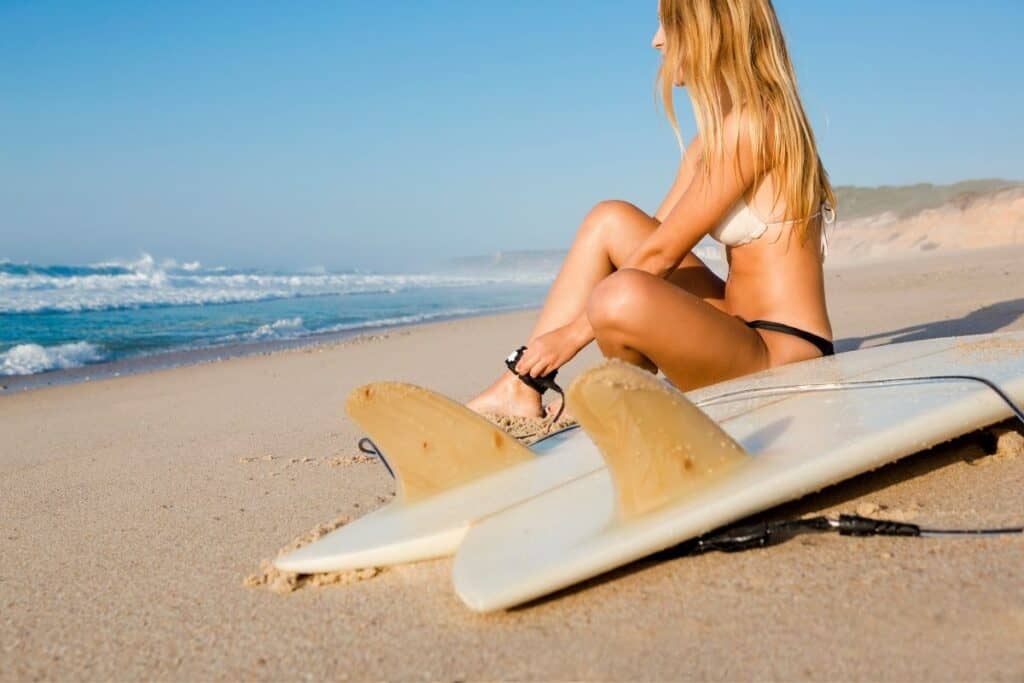
A regular longboard can measure up to around 7 feet (2 m) long, while a twin fin surfboard may only measure between 3-4 feet (1 m – 1.3 m).
However, this can vary depending on the style of the board and the intended use.
While many do have smaller lengths, they will be wider, so they are easier to paddle with.
Some will also be narrower and shorter, with rounded edges instead of square corners.
This also makes them easier to paddle and control.
The most important aspect of a twin fin surfboard though is its stability.
Because there’s no center fin, the twin fin surfboard is extremely stable. It doesn’t tip over as easily as a traditional surfboard.
A Brief History Of The Twin Fin
The history of twin fin surfboards goes back all the way to the early 1900s.
In fact, the first twin fin surfboard was invented by George Greenough, who designed his own version of a twin fin surfboard. He called it the “Greenough Board.”
In the 1930s, surfers started using twin fin surfboards because they were faster than any other type of surfboard available.
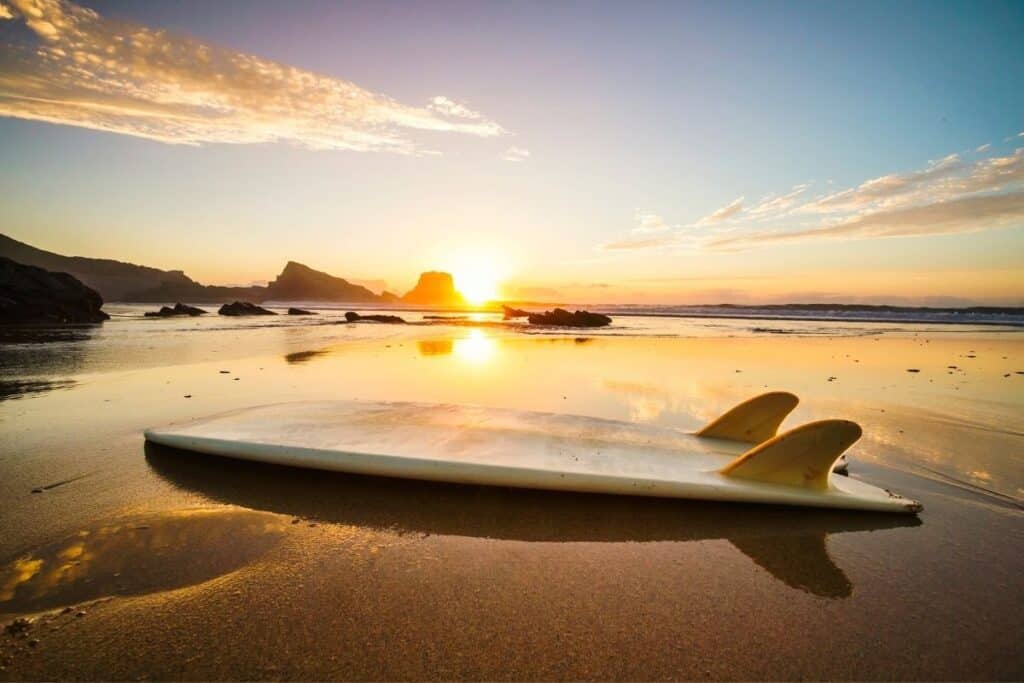
By the 1940s, twin fin surfboards had become almost completely mainstream.
However, the invention of fiberglass made it possible to mass-produce surfboards, which meant that people could afford to buy multiple boards.
This led to many surfers switching from twin fin surfboards to single fin surfboards.
In recent years, however, the popularity of twin fin surfboards has increased again.
There are now hundreds of companies making high-quality twin-fin surfboards.
Many of these companies are based out of Australia, where the waves are some of the best in the world.
Twin Fin Performance
Twin fins allow you to carve better than single fins, and they help you stay in control when carving.
When surfing with twin fins, you should try to keep your weight centered over the center of the board.
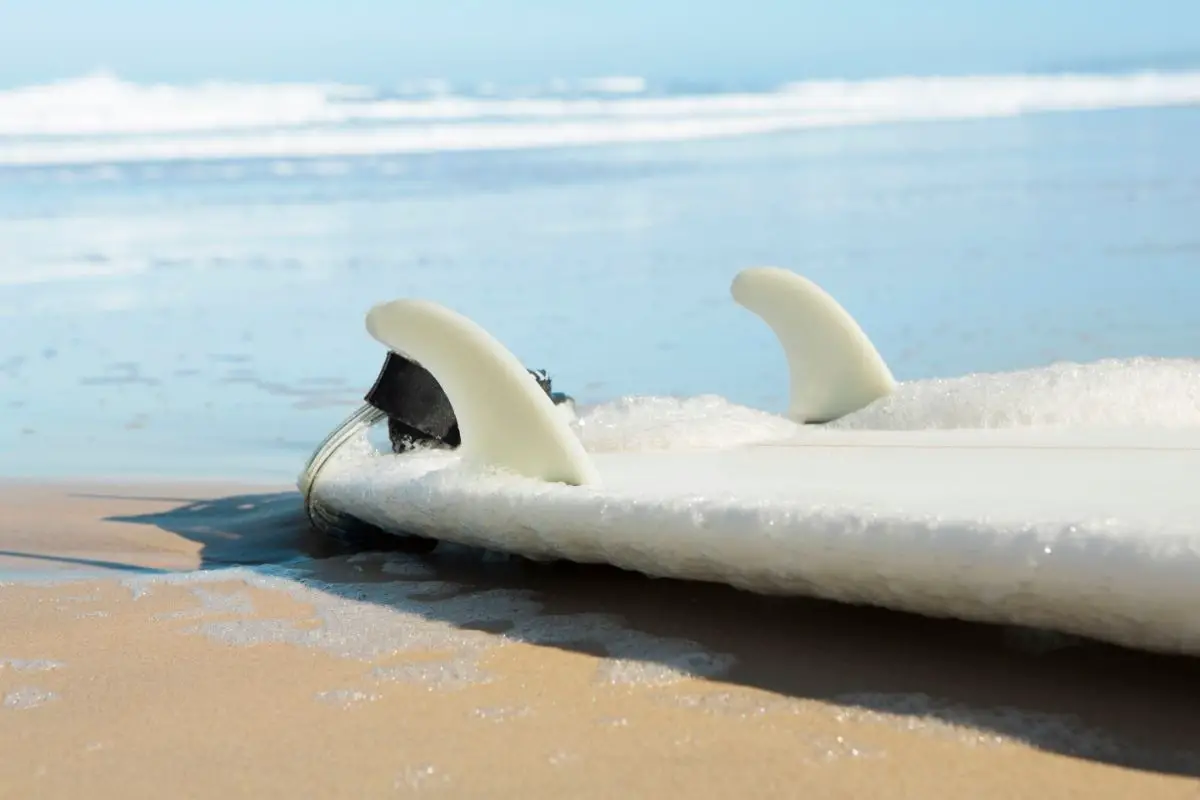
If you do this, then you won’t feel like you’re tipping over.
You can also pump more smoothly because there is less resistance. Twin fins are usually bigger and softer than single fins, which makes them easier to paddle with.
Because twin fins don’t interfere with one another, they give you a lot more freedom to move.
This means that you can do things like kick turns, cutbacks, and even ollies.
You can also use twin fins to get into position quicker. When you’re surfing in big wave spots, getting into position quickly is essential.
If you’re not quick enough, you may end up being washed away before you can catch a wave.
When you’re riding smaller waves, twin fins provide a great deal of stability.
They give you the ability to ride through choppy water without tipping over or falling off your board.
Twin Fin vs. Keel
Twin fins are used by surfers because they are easier to control and maneuver when surfing. They also give a looser feeling and allow for more maneuverability.
Keels are wider and longer than standard twin fins. They are used on surfboards because they give the board a better grip and help with turning.
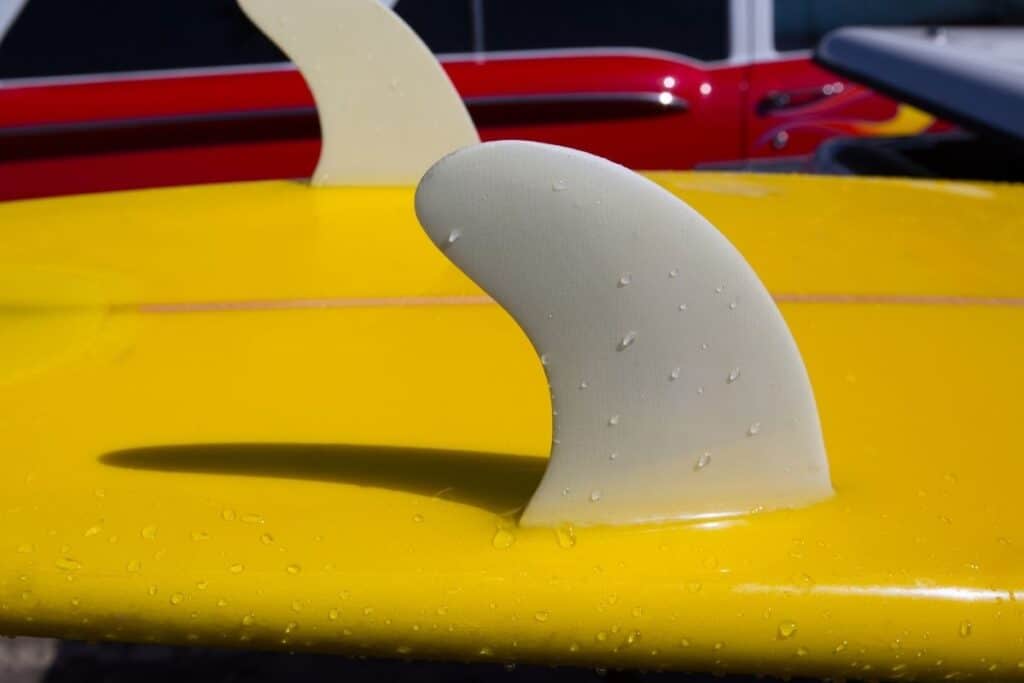
Keel fins are used by surfers who want to ride big waves. They help surfers stay steady while riding high up on them.
They also help surfers make smooth transitions from top to bottom when starting turns.
Twin fins are used by surfers who want to perform better. They sit higher up on the surfboard for more control and maneuverability.
Standard twin fins are usually shorter than keels, but they still have a large surface area. They are also wider (more extended base) and longer than keels.
Keel fins are more effective than traditional fins because they allow surfers to ride bigger waves while maintaining stability.
Keel fins provide a greater amount of grip when riding waves.
Your Ideal Twin Fin
Twin fins are great boards for beginners because they’re easier to learn on. You can surf them with less volume, so you won’t feel as much pressure when taking off.
They also have less rocker, so you’ll have to get used to that.
You may want to start out with an HP short board if the water is really rough. Stand lower when taking off so that you don’t end up going over the handlebars.
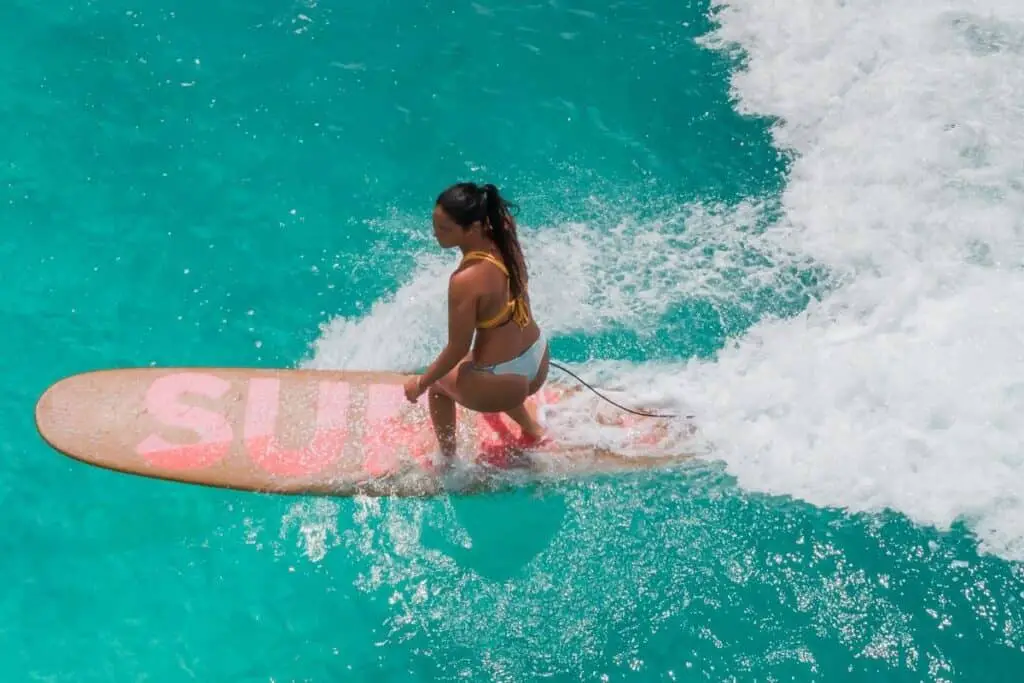
If you’ve been surfing for a long time, it’s important to find a good balance between performance and comfort.
A twin fin will be more comfortable for you to ride, but it might not be as fast as a single fin. It all depends on what type of waves you prefer to surf.
The best way to find the right size is to measure yourself. The length of your fin should be about half the width of your foot.
For example, if you have a 10″ foot, then your ideal fin would be 5″.
The best place to buy a twin fin is at a surf shop. There are many brands of twin fins available, so you need to know what brand you want before buying.
Final Thoughts
Surfing is a sport that requires a lot of practice to perfect. But once you master the art of riding a twin fin, you’ll never go back!
It is important to note that these fins are best for smaller waves, as when using a twin fin in bigger waves, it can feel a little loose and hard to control.
That being said, these fins are perfect for smaller breaks, and you’ll really feel glorious as you glide through them with ease.
